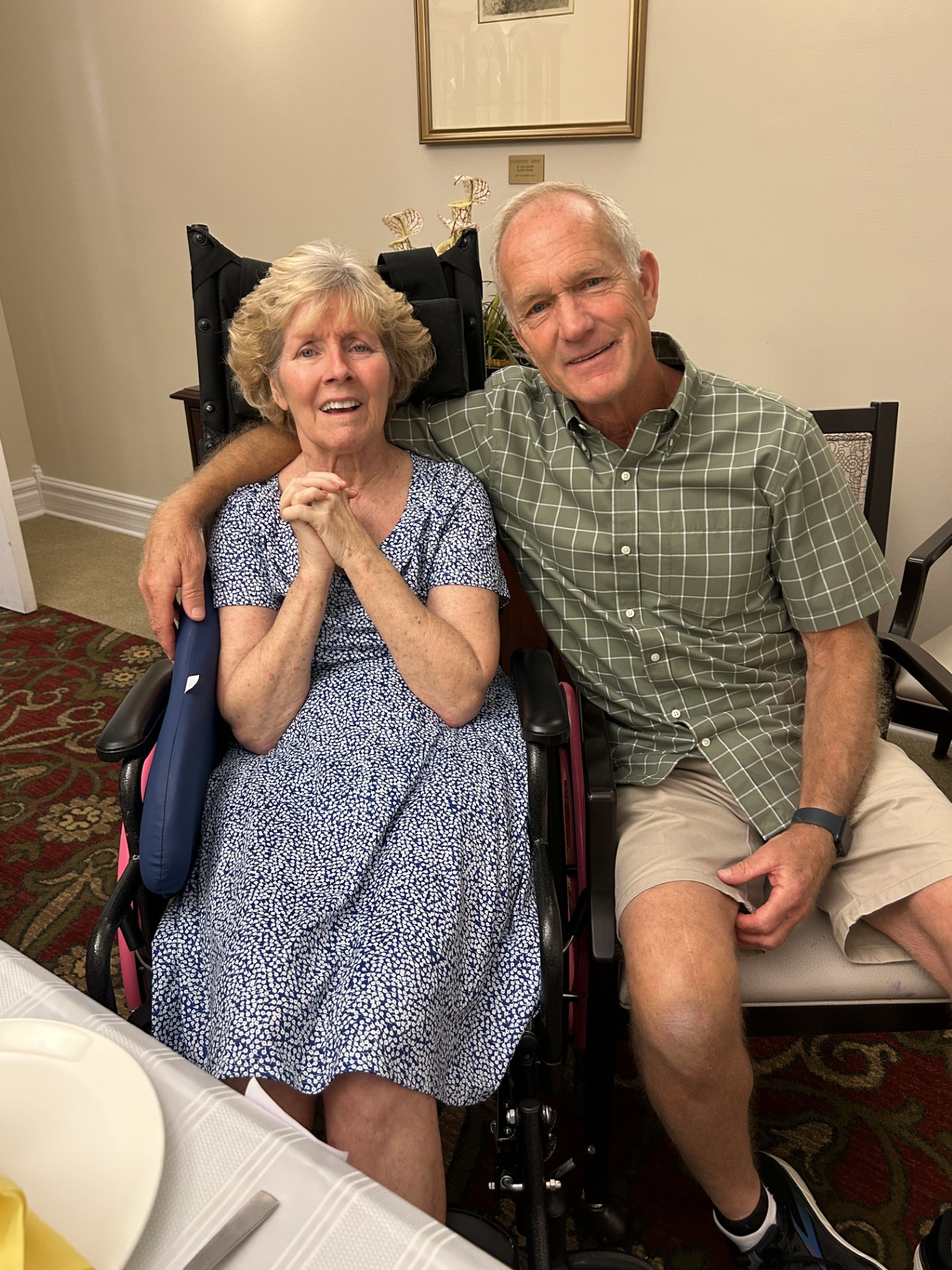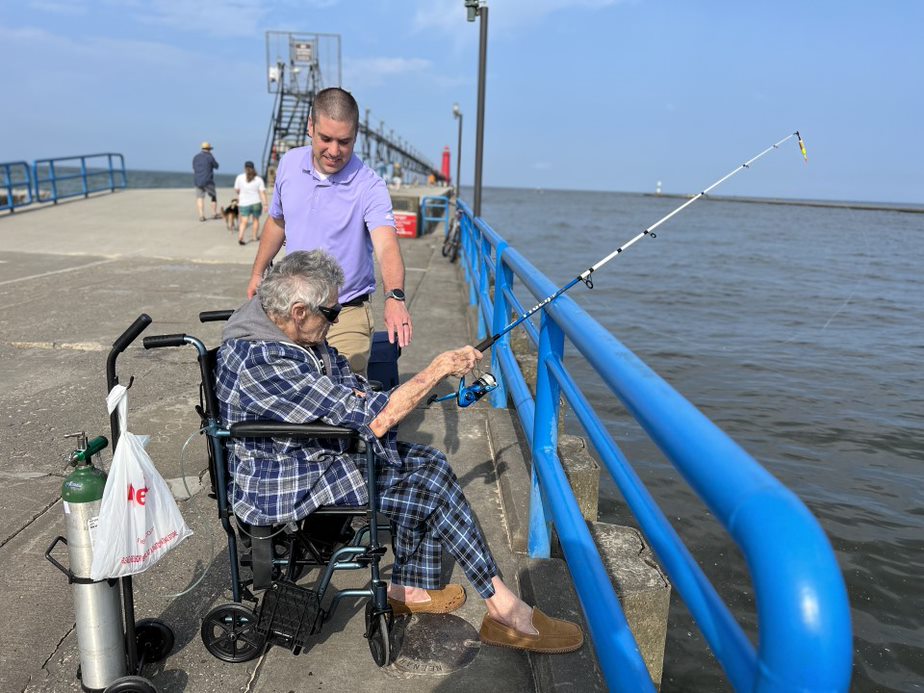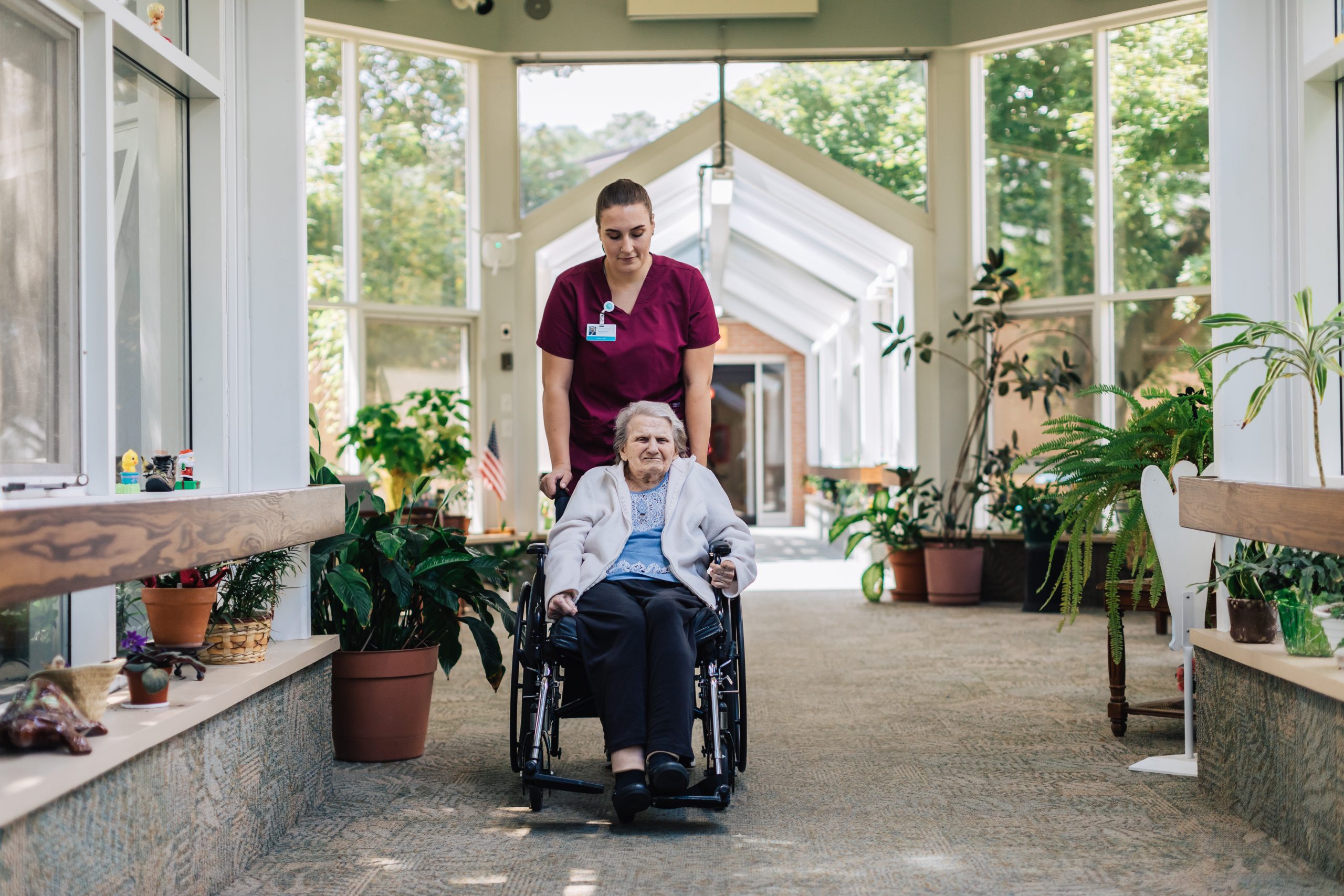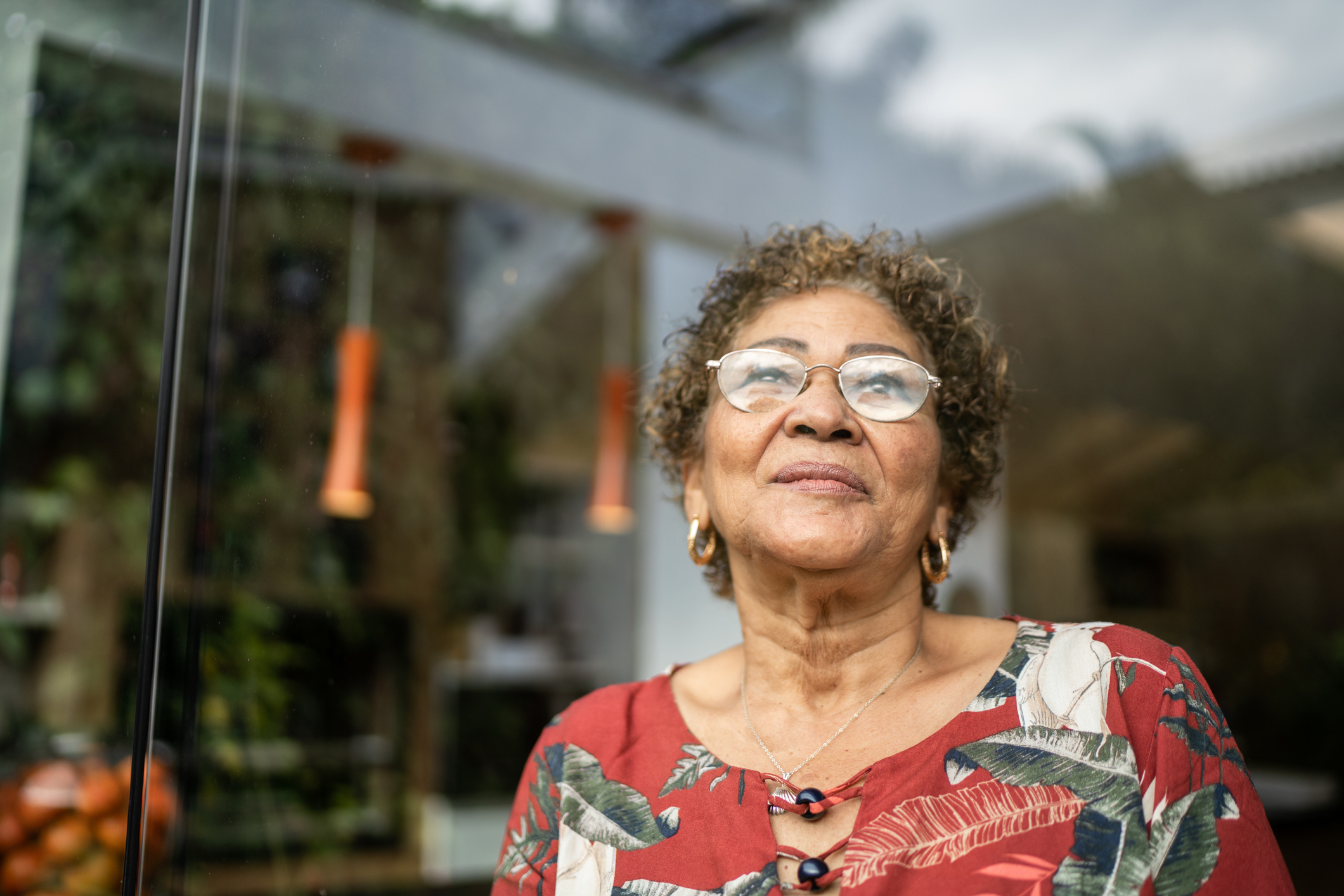They both grew up in South Dakota but lived in different towns. When they finally met as students at the University of South Dakota – he was studying business while she was studying education – he remembered her being “so dang popular” that he hesitated in asking her out.
That was nearly 50 years ago, when Dan Shaheen never could have predicted all the joy which that engaging college student would give him over a lifetime of mutual sharing and caring. And then the bitter pill to swallow: dementia that enveloped Rita over the last few years, to a point where she has trouble with walking, talking, reading and other daily affairs of living. They eventually moved her into Clark Retirement at Franklin in January 2023 for additional support.
They’d both enjoyed successful careers – Rita as a special education instructor mostly with Forest Hills schools. She retired in 2017 and the medical journey began shortly after that. Dan served as a vice president for Meijer, Inc. until retiring early in 2011, then worked part time several years delivering flowers.
He was skeptical about considering hospice care for Rita until a few months ago, when a doctor asked what he wanted for his wife.
“To keep her comfortable, out of the hospital and receiving the best care possible,” he answered.
In that moment, it was clear: Hospice would serve as a gift.
They chose Emmanuel Hospice for its overall commitment to patients and their loved ones, caring culture and complementary therapies designed to engage the senses and create unique, joyful experiences for both the patient and their loved ones. The nonprofit always begins with the question, “How do you want to live?” as the starting point for a dialogue that focuses on making every moment matter.
When a counselor gently asked Dan whether there was something special he might like to provide for Rita, he reminisced about their favorite pastimes.
A boat ride around the lake where they still had a cottage came to mind at first, but seemed difficult to achieve since Rita relied largely on a wheelchair and was at risk of another seizure. Similar concerns came with his other ideas.
And so the counselor suggested, “How about a luncheon for two?” and Dan thought it was perfect.
It’s standard protocol at Emmanuel, where granting patient wishes is an important touchstone and part of their culture in answering “How do you want to live your life?”
“As part of that answer, we often hear patients wish for things,” says Bereavement Coordinator Katie Mayberry. “We’ll do our best to make things happen, whether it’s someone still capable of taking a trip or simple things that connect them to their past, their loved ones and their friends.
“We’re grateful when businesses and others in the community step up with donations to help out.”
And so Emmanuel Hospice reserved the Emily Clark room at the facility Rita had moved into six months ago. Rita wore a pretty dress of blue and white with a dainty collar. She had her hair done and wore a little makeup and “looked like a million bucks,” Dan said.
Before they dined, two musical therapists, Miranda Eden and Ashley Sherwood, from Emmanuel performed songs by John Mayer and Kacey Musgraves.
Rose’s restaurant on Reeds Lake provided their catered lunches. She nibbled on a margherita pizza and Dan enjoyed walleye. Afterward, they feasted on hot fudge sundaes brought in from Jersey Junction.
Dan sat on her left. He worked Rita’s fork for her. He leaned in to wipe her chin, smiled and managed some laughs. He whispered that he loved her, and how he meant it from his own heart and the hearts of their three children, Michael, Kelly and Kaley.
And even though it wasn’t a wish steeped in drama or faraway travel or fireworks, he told her this was enough. Choking back tears, he said it was “just nice being close.”
He held the hand of the girl who nearly got away but ended up marrying the guy willing to bide his time. Afterward, Dan brought her back to her room and sat with Rita while she peacefully took her usual afternoon nap, leaving that day with a memory that will be remembered and cherished forever.
# # #




